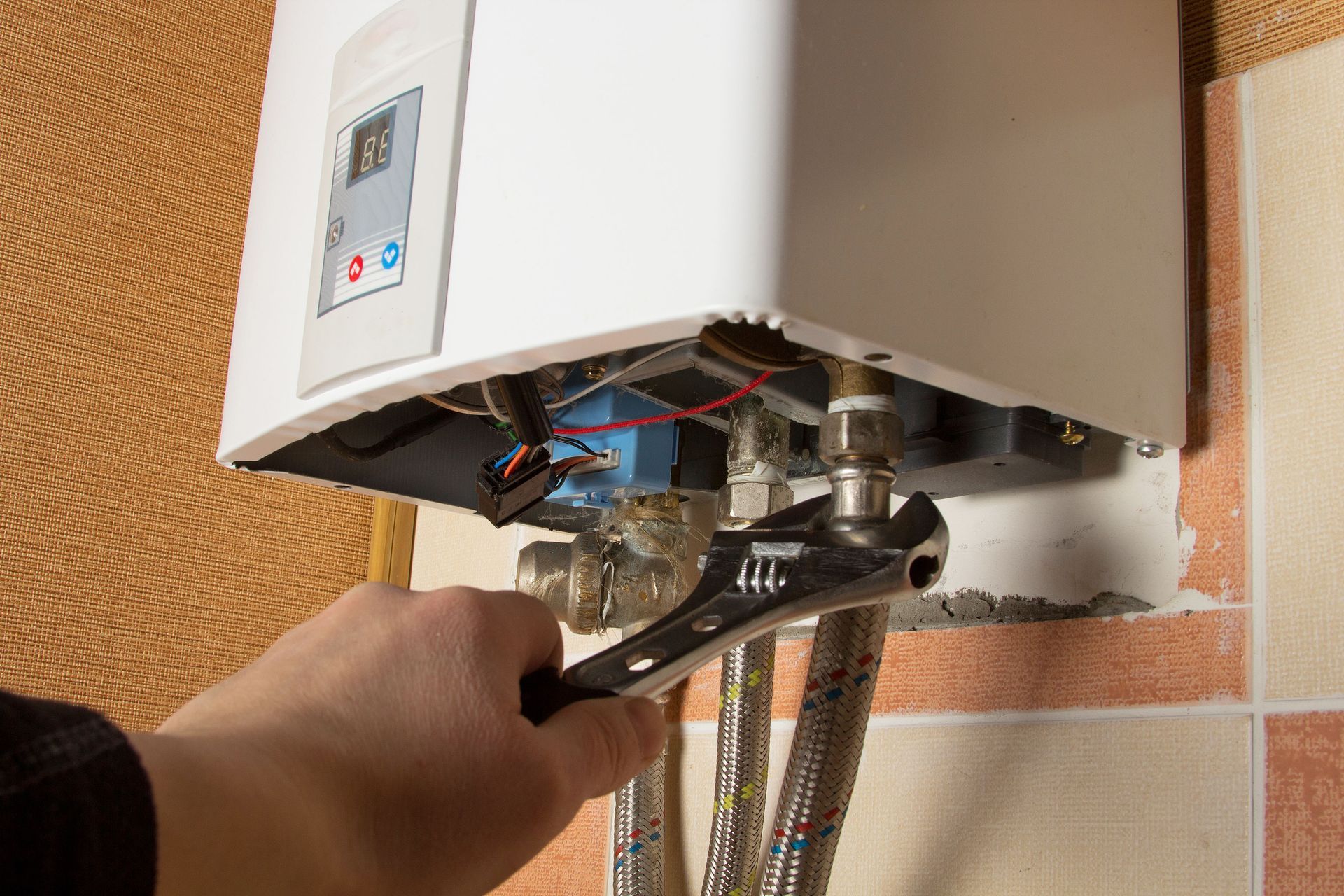Heating Oil Supplier Insights for Homeowners
Navigating the world of heating oil can be daunting, but understanding the mechanics behind it can reduce anxiety and lead to better choices. By delving into supplier types, factors affecting cost, and environmental impacts, we equip homeowners with the knowledge needed to optimize efficiency and safety in home heating. According to Shipley Energy, approximately 5 million American households use heating oil to heat their homes in the winter, making it crucial to understand the complexities of selecting a heating oil supplier.
Understanding the Role of Heating Oil Suppliers
Definition and Overview
Heating oil suppliers are companies or entities responsible for the distribution and delivery of heating oil to residential customers. Their role is critical, as they ensure that homeowners receive a steady supply of heating oil to keep their homes warm during colder months. Efficient delivery logistics involve coordination between suppliers' storage facilities and homeowners' storage tanks. In addition to delivery, suppliers often provide maintenance services and emergency support to address any operational concerns homeowners might face. This comprehensive role underscores the importance of selecting a competent and reliable supplier to ensure heating oil is efficiently managed.
Types of Heating Oil Suppliers
A heating oil supplier can primarily be categorized into local suppliers, regional chains, and national companies. Local suppliers often provide personalized service with a strong focus on community relations and customer satisfaction. Regional chains may offer a balance between personalized service and logistical efficiency due to their modest service areas. Conversely, national companies leverage their expansive networks to offer competitive pricing and broad service capabilities, although sometimes at the expense of localized understanding. Homeowners must weigh the benefits and drawbacks of each type when selecting a supplier, considering factors such as cost, service quality, and community engagement.
Importance of Choosing a Reliable Supplier
Choosing a reliable heating oil supplier can significantly impact the efficiency and safety of home heating systems. A trustworthy supplier ensures timely deliveries, preventing any interruptions in heating, especially during peak winter months. In addition to reliability in supply, reputable suppliers prioritize system safety through regular maintenance check-ups and emergency services. This reliability contributes to sustained home comfort, safety, and the prevention of potential heating system failures. Consequently, homeowners can enjoy peace of mind, knowing that their heating needs will be met consistently and safely.
Supply Chain Challenges
The supply chain for heating oil involves several logistical challenges that can affect both suppliers and homeowners. Seasonal demand fluctuations, weather conditions, and geopolitical factors can lead to inconsistencies in supply and pricing. Suppliers must navigate these challenges by maintaining efficient storage practices and developing contingency plans for interruptions. For homeowners, understanding these challenges is crucial in anticipating potential shortages and planning accordingly. By grasping these dynamics, homeowners can develop more effective communication and contingency strategies with their suppliers, minimizing the impact of supply disruptions.
Factors to Consider When Selecting a Heating Oil Supplier
Pricing Structures
The pricing structure offered by a heating oil supplier can significantly impact a homeowner's decision-making process. Fixed pricing offers a locked-in rate for a specified period, shielding homeowners from market volatility, while variable pricing fluctuates with the market, potentially offering savings when prices drop. Supplier contracts often specify the terms and conditions associated with these pricing models, providing options to suit different financial preferences. Understanding the intricacies of these structures allows homeowners to balance budgetary concerns with market risks better. Additionally, negotiating with suppliers or consulting with industry professionals can guide homeowners to the most advantageous pricing strategy.
Delivery Options
Homeowners have two primary delivery options when working with heating oil suppliers: automatic delivery and will-call delivery. Automatic delivery involves suppliers monitoring usage and scheduling refills proactively based on past consumption patterns. This option offers convenience and reduces the risk of running out of oil, particularly during high-demand periods. Will-call delivery requires homeowners to actively monitor their supplies and request refills as needed, granting more control but demanding attentiveness and careful planning. Understanding these delivery options enables homeowners to select the service that best suits their lifestyle and heating needs.
Payment Plans
Heating oil suppliers offer various payment plans to accommodate homeowners’ financial needs and preferences, including pre-pay and budget plans. Pre-pay plans involve purchasing a specified amount of heating oil in advance at a locked-in price, protecting against future price increases. Budget plans, on the other hand, spread the annual heating cost over predictable monthly payments, reducing seasonal financial strain. Each plan offers distinct benefits and considerations that homeowners must assess based on cash flow and financial planning preferences. These payment options empower consumers with financial flexibility, enabling them to efficiently manage heating costs throughout the year.
Customer Service and Support
The quality of customer service and support provided by a heating oil supplier significantly impacts homeowner satisfaction. Attentive customer service ensures that inquiries and service requests are addressed promptly, maintaining seamless and reliable home heating. Technical support and emergency services offered by suppliers also bolster system reliability and safety, particularly during inclement weather or unexpected breakdowns. Homeowners are encouraged to assess supplier customer service reputations through reviews, testimonials, and community feedback. Choosing a supplier with a proven track record of excellent support can enrich the homeowner experience, fostering long-term service satisfaction.
Cost-Saving Tips for Homeowners
Off-Season Buying
Purchasing heating oil during off-peak seasons can yield significant cost savings for homeowners. During warmer months, the demand for heating oil diminishes, often resulting in lower prices. Savvy homeowners take advantage of these market trends by stocking up on heating oil when prices are low, potentially securing a more favorable pricing rate for the year. By timing purchases strategically, homeowners can reduce overall heating expenses and mitigate the financial impact of price fluctuations. Off-season buying requires monitoring of market trends and effective communication with suppliers to capitalize on optimal pricing opportunities.
Conservation Techniques
Implementing conservation techniques can dramatically decrease heating oil consumption, leading to monetary savings and reduced environmental impact. Homeowners can adopt practices such as improving insulation, sealing drafts, and utilizing programmable thermostats to enhance energy efficiency. These methods maintain interior warmth without over-reliance on heating systems, lowering the volume of oil required. Practicing regular maintenance and addressing inefficiencies in heating systems also contributes to sustainable heat management. Conservation not only reduces consumption but also lowers emissions, fostering an environmentally conscious approach to home heating.
Using Energy-Efficient Equipment
Upgrading to energy-efficient heating equipment can significantly reduce heating oil consumption and costs. Modern furnaces and boilers feature advanced technology designed to operate with higher efficiency, optimizing energy use, and minimizing waste. Though the initial investment in new equipment might be substantial, the long-term savings on oil usage and maintenance prove to be economically beneficial. Homeowners should consult with heating professionals to identify suitable upgrades tailored to their individual needs and property specifications.
Regular Maintenance
The importance of preventive maintenance cannot be overstated for homeowners relying on heating oil systems. Scheduled inspections and servicing ensure that systems operate efficiently, reducing unnecessary fuel consumption and preventing costly breakdowns. Maintenance services often identify potential issues before they escalate, securing safety and sustained heating performance. Establishing a partnership with a reliable supplier who offers comprehensive maintenance packages adds an extra layer of assurance.
Summarizing key takeaways and empowering homeowners with knowledge to make educated decisions regarding heating oil suppliers and options. Contact H Reynolds & Son Inc today to speak with a professional heating oil supplier.





Share On: